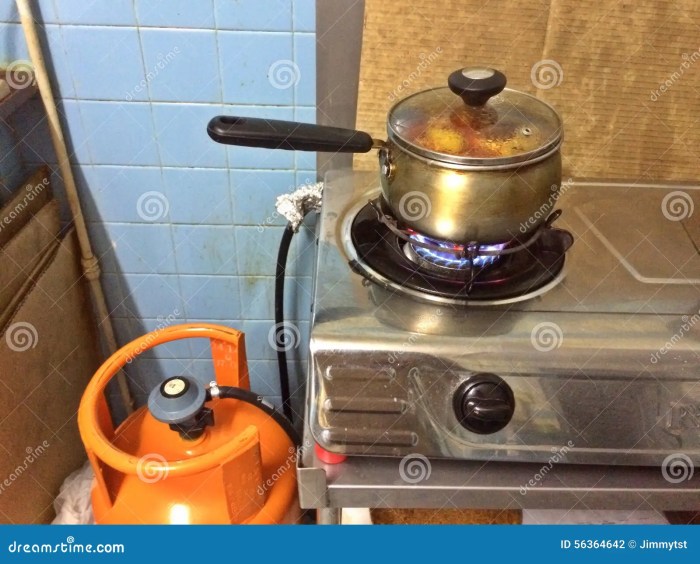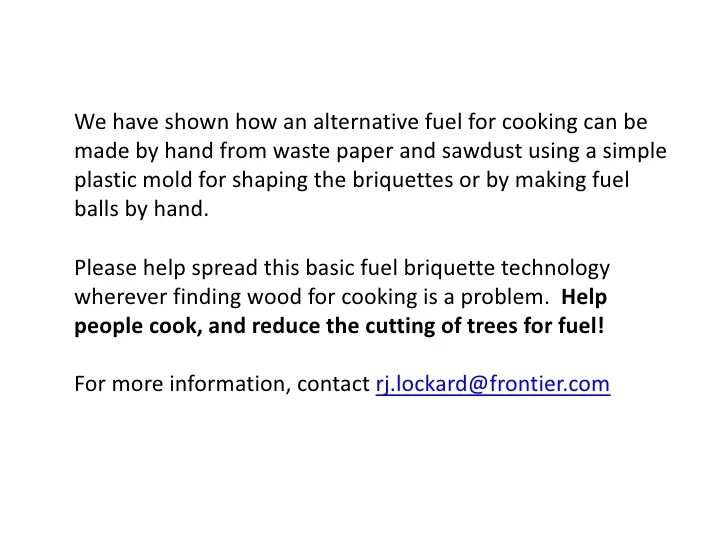Can i use gasoline in recipe – Can I use gasoline in a recipe? This question might seem absurd, but surprisingly, it’s a question that has come up more than once. The idea of using gasoline in food is not only incredibly dangerous but also completely unfounded.
Gasoline is a highly flammable and toxic substance that should never be ingested. It’s crucial to understand the risks associated with gasoline poisoning and why it’s never an acceptable ingredient in any recipe.
Gasoline, a complex mixture of hydrocarbons, is designed for combustion engines, not for human consumption. It contains harmful chemicals that can cause severe health problems, including damage to the liver, kidneys, and nervous system. Ingesting even a small amount of gasoline can lead to serious health consequences, including vomiting, diarrhea, dizziness, and even death.
The Dangers of Gasoline in Food
Gasoline is a highly flammable and toxic substance, and it should never be used in food preparation. Ingesting gasoline can lead to serious health problems, even death.
Health Risks Associated with Ingesting Gasoline
The potential health risks associated with ingesting gasoline are significant. Gasoline is a complex mixture of hydrocarbons, including benzene, toluene, and xylene, all of which are known to be toxic to humans. These chemicals can damage various organs and systems in the body, leading to a range of health problems.
Chemical Composition of Gasoline and its Toxic Effects
Gasoline is primarily composed of hydrocarbons, with varying amounts of additives that improve its performance and stability. The most common hydrocarbons in gasoline are:
- Alkanes: These are saturated hydrocarbons, meaning they contain only single bonds between carbon atoms. Examples include methane, ethane, propane, and butane.
- Alkenes: These are unsaturated hydrocarbons, meaning they contain at least one double bond between carbon atoms. Examples include ethylene, propylene, and butylene.
- Alkynes: These are unsaturated hydrocarbons, meaning they contain at least one triple bond between carbon atoms. Examples include acetylene, propyne, and butyne.
- Aromatic hydrocarbons: These are hydrocarbons that contain a benzene ring. Examples include benzene, toluene, and xylene.
The toxic effects of gasoline on the human body can be categorized as follows:
- Respiratory effects: Inhalation of gasoline vapors can irritate the lungs and cause coughing, shortness of breath, and even pneumonia. In severe cases, gasoline inhalation can lead to respiratory failure.
- Gastrointestinal effects: Ingesting gasoline can cause severe irritation and damage to the mouth, throat, esophagus, and stomach. This can lead to vomiting, diarrhea, abdominal pain, and internal bleeding.
- Nervous system effects: Gasoline can affect the nervous system, causing dizziness, headache, confusion, drowsiness, and even coma. Long-term exposure to gasoline can lead to permanent neurological damage.
- Cardiovascular effects: Gasoline can damage the heart and blood vessels, leading to irregular heartbeat, high blood pressure, and even heart failure.
- Liver and kidney effects: Gasoline can damage the liver and kidneys, leading to liver failure and kidney failure.
- Cancer: Some of the chemicals in gasoline, such as benzene, are known carcinogens, which means they can cause cancer.
Symptoms of Gasoline Poisoning
The symptoms of gasoline poisoning can vary depending on the amount of gasoline ingested and the individual’s health status. Some common symptoms include:
- Nausea and vomiting
- Diarrhea
- Abdominal pain
- Dizziness
- Headache
- Confusion
- Drowsiness
- Weakness
- Seizures
- Coma
If you suspect that someone has ingested gasoline, it is important to seek medical attention immediately.
Gasoline and Cooking

Gasoline is a highly flammable and toxic substance, and it is never a suitable ingredient in any recipe. While some misconceptions might suggest otherwise, it is crucial to understand the dangers of using gasoline in food preparation.
Common Misconceptions About Using Gasoline in Cooking
The idea of using gasoline in cooking might seem absurd, but there are some common misconceptions that need to be addressed. One misconception is that gasoline can be used as a fuel source for cooking. While gasoline is flammable, it is not designed for use in cooking appliances like stoves or grills.
Using gasoline in this manner is extremely dangerous and can lead to fires, explosions, and severe injuries.Another misconception is that gasoline can be used as a flavoring agent. Some individuals might believe that gasoline can add a unique flavor to certain dishes.
However, this is entirely false. Gasoline is a petroleum product and contains harmful chemicals that are toxic to humans. Consuming gasoline can cause severe health problems, including poisoning, organ damage, and even death.
Why Gasoline Is Never a Suitable Ingredient in Any Recipe
Gasoline is a volatile and toxic substance that should never be used in food preparation. Here are some key reasons why:
- Toxicity:Gasoline contains harmful chemicals that are toxic to humans. Consuming even small amounts can cause severe health problems, including poisoning, organ damage, and even death.
- Flammability:Gasoline is highly flammable and can easily ignite, posing a serious fire hazard in the kitchen. Using gasoline near heat sources like stoves or ovens can lead to explosions and severe burns.
- Unpredictability:Gasoline is a volatile substance that can evaporate quickly, making it difficult to control its concentration in food. This unpredictability can lead to inconsistent results and potential health risks.
Differences Between Gasoline and Edible Fuels
Gasoline is a petroleum product, while edible fuels like propane and natural gas are derived from natural sources. The table below highlights the key differences between these fuels:
| Feature | Gasoline | Propane | Natural Gas |
|---|---|---|---|
| Source | Petroleum | Natural gas | Natural gas |
| Toxicity | Highly toxic | Non-toxic | Non-toxic |
| Flammability | Highly flammable | Flammable | Flammable |
| Suitability for Cooking | Never suitable | Suitable | Suitable |
The Importance of Food Safety

Food safety is paramount to our well-being, ensuring that the food we consume does not cause illness or harm. Using safe and approved ingredients is essential in food preparation, as it helps prevent foodborne illnesses and protects our health.
The Role of Government Agencies in Food Safety
Government agencies play a crucial role in regulating food safety by setting standards and enforcing regulations to protect consumers. These agencies conduct inspections, monitor food production and processing, and investigate outbreaks of foodborne illnesses. They also educate the public about food safety practices and provide resources for safe food handling.
Learn about more about the process of body butter recipe in the field.
Common Food Safety Guidelines
Following food safety guidelines is crucial in preventing foodborne illnesses. Here are some essential guidelines to follow:
- Wash hands thoroughlywith soap and water before and after handling food.
- Wash fruits and vegetablesthoroughly under running water before consumption.
- Cook meat and poultryto the recommended internal temperature to kill harmful bacteria.
- Separate raw meat, poultry, and seafoodfrom other foods to prevent cross-contamination.
- Refrigerate perishable foodspromptly to slow bacterial growth.
- Avoid leaving food out at room temperaturefor extended periods, as bacteria can multiply rapidly.
- Thaw frozen foodsin the refrigerator or microwave, never at room temperature.
- Use clean utensils and surfacesfor food preparation.
- Store food in airtight containersto prevent spoilage and contamination.
- Check expiration datesand avoid consuming expired products.
Alternative Fuels for Cooking

Cooking fuels play a crucial role in preparing food, influencing its taste, texture, and overall quality. While gasoline is unsuitable for cooking due to its toxicity and flammability, various alternative fuels are widely used in kitchens worldwide. Understanding the characteristics and advantages of each fuel source can help you make informed decisions about the best option for your cooking needs.
Comparison of Cooking Fuels, Can i use gasoline in recipe
The choice of cooking fuel depends on factors such as availability, cost, efficiency, and environmental impact. Common cooking fuels include propane, natural gas, and electricity, each with unique properties and advantages.
- Propaneis a readily available, highly flammable gas that is commonly used in portable stoves and grills. Its advantages include its portability, ease of storage, and relatively high heat output. However, propane is a fossil fuel, contributing to greenhouse gas emissions.
It also requires proper storage and handling due to its flammability.
- Natural gasis a cleaner-burning fossil fuel that is often piped directly to homes and businesses. It is a popular choice for cooking due to its efficiency, affordability, and lower emissions compared to propane. However, natural gas extraction and processing can have environmental impacts, and it is not as portable as propane.
- Electricityoffers a clean and efficient alternative to fossil fuels for cooking. Electric stoves and ovens provide precise temperature control and are generally considered safer than gas-powered appliances. However, electricity can be expensive, especially in areas with high energy costs, and electric appliances may take longer to heat up compared to gas-powered counterparts.
Advantages and Disadvantages of Cooking Fuels
A comprehensive comparison of the advantages and disadvantages of different cooking fuels is presented in the table below.
| Fuel Source | Advantages | Disadvantages |
|---|---|---|
| Propane | Portable, high heat output, readily available | Fossil fuel, greenhouse gas emissions, flammable |
| Natural Gas | Clean-burning, efficient, affordable, piped directly to homes | Fossil fuel, environmental impacts from extraction, not as portable as propane |
| Electricity | Clean, efficient, precise temperature control, generally safer | Expensive, may take longer to heat up, reliance on electricity grid |
Misinformation and Urban Legends
The internet is a powerful tool for information sharing, but it can also be a breeding ground for misinformation and urban legends. This is especially true when it comes to food safety, as rumors and myths can quickly spread, leading to unnecessary fear and confusion.It’s important to be critical of the information you encounter online and to rely on reputable sources.
One of the most common urban legends about gasoline and food is the idea that adding a small amount of gasoline to a marinade can make meat more tender. This is completely false and incredibly dangerous. Gasoline is a highly flammable and toxic substance that should never be ingested.
Identifying Reliable Sources
To ensure you’re getting accurate information about food safety, it’s crucial to identify reliable sources. Here are some key factors to consider:
- Reputable Organizations:Look for information from organizations like the Food and Drug Administration (FDA), the Centers for Disease Control and Prevention (CDC), and reputable health and food safety organizations.
- Scientific Evidence:Check if the information is backed by scientific evidence. Reputable sources will cite their sources and provide evidence to support their claims.
- Author Credentials:Verify the credentials of the author or organization providing the information. Are they experts in food safety or nutrition?
- Date of Publication:Pay attention to the date of publication. Outdated information may not reflect current food safety standards.
Common Myths About Gasoline and Food
Here are some common myths about using gasoline in food:
- Gasoline as a Tenderizer:As mentioned earlier, gasoline is not a tenderizer and should never be used in food preparation. It is a highly toxic substance and can cause serious health problems if ingested.
- Gasoline for Flavor Enhancement:Some rumors suggest that gasoline can enhance the flavor of certain dishes. This is completely false and dangerous. Gasoline is a petroleum product with a pungent odor and a bitter taste. It should never be used in food.
- Gasoline as a Fuel for Cooking:There are no instances where gasoline is used as a fuel for cooking. Gasoline is highly volatile and extremely flammable. Using it for cooking would be incredibly dangerous and could lead to fires or explosions.
Closure: Can I Use Gasoline In Recipe
Remember, when it comes to food safety, it’s essential to rely on credible sources of information. Always use approved ingredients and follow proper food handling practices to ensure the safety of yourself and your loved ones. Never experiment with dangerous substances like gasoline in the kitchen.
Instead, embrace the world of culinary delights with safe and delicious ingredients that nourish your body and tantalize your taste buds.
